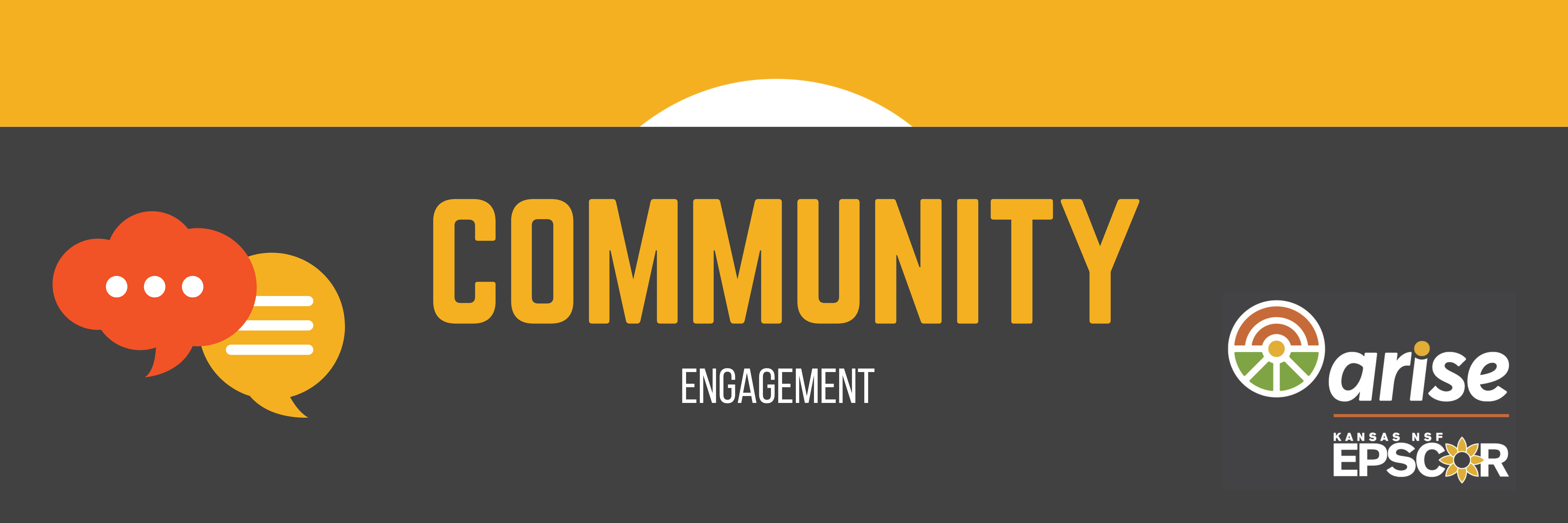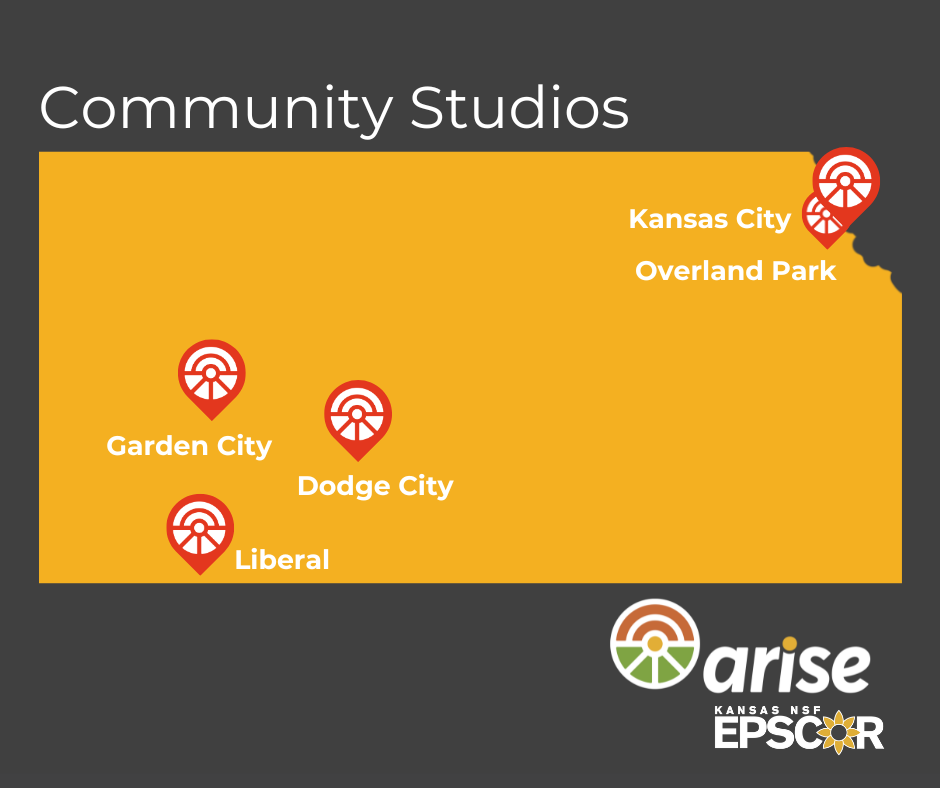
While Kansas residents rarely get to talk to academics about real-world challenges, the ARISE project uses community studios to facilitate these types of conversations.
From February to June 2024, the team hosted eight community studios, including two in Spanish, in five cities. Roughly 85 Kansans from Dodge City, Garden City, Liberal, Kansas City, and Overland Park attended these events alongside 20 in-state scientists.
Attendees shared stories about disaster resilience and how equity impacts infrastructure investments in their communities. They also took surveys and engaged in group activities to further explore these concepts and their community’s unique assets.
Jason Bergtold, professor of agricultural economics at Kansas State University, organized the sessions with the help of Alej Martinez, program coordinator at Kansas NSF EPSCoR, and two colleagues of the Environmental Finance Center at Wichita State University, Director Tonya Bronleewe and Program Associate John Colclazier.
Dr. Bergtold summarized the findings of each studio into a separate report. He said that these reports highlight the relative importance of various aspects and guiding principles of social equity and community resilience across the different communities. Each report also includes a map of the community’s capitals, showing how assets vary across communities.
These findings are helpful for residents and researchers seeking to enhance community resilience and social equity.
Dr. Bergtold and the ARISE research team plan to organize another round of studios starting in February 2025. These studios will focus on defining SMART Equitable Community Goals to enhance resilience and identifying actionable steps to measure progress toward these goals.
Key takeaways from the reports:
- Aspects of community resilience and social equity that are important to communities across Kansas differ across communities. Communities have different priorities and needs. Communities consistently considered aspects, such as “everyone has access to clean water, affordable energy, and transportation”, “everyone has access to the needed public services and resources”, and “reliable and hardened infrastructure (water, energy, and transportation”, of high importance for their communities.
- Each community has a rich array of resources and assets that can be utilized to help with enhancing community resilience and social equity. Maps of community capitals, which help to examine these resources and assets, were developed. This provides a start to begin looking at these resources and assets for enhancing social equity and community resilience.
- Communities identified how different assets and resources enhance community resilience and social equity. For example, drinking water and wastewater were seen as strongly positively influencing community resilience and social equity in Johnson County, Ford County and Seward County. The level of influence of built capital, particularly water, energy and transportation infrastructures and related services, on community resilience and equity varied across the communities where studios where help.
2024 Community Studio Reports

